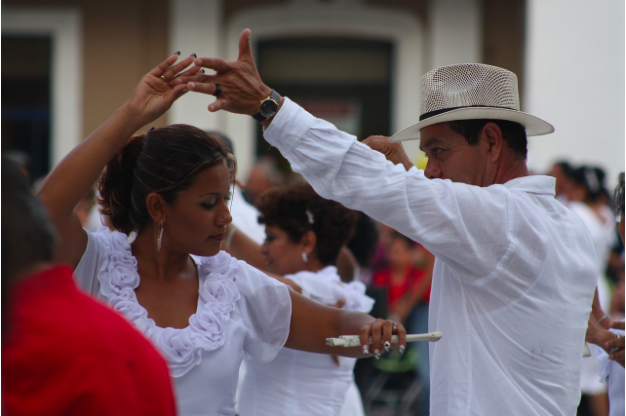Photo site/credit https://pixabay.com/en/danzon-dance-mexican-couple-2439132/
If you are not a dancer, you may think of dance as just a fun way to get some exercise. While that is a true statement, it is also like saying the ocean is a body of water. It is a body of water, but it is so much more, that the statement is almost silly.
Table of Contents
Dance – as a form of exercise
Yes, it is true that when a person dances, they are putting their body in motion. That uses energy (calories) and helps a person lose excess weight or maintain their current weight if they balance the fuel they used with the fuel they consumed. Dance can be a direct contributor to many health benefits.
Dance increases the heart rate. Regularly increasing your heart rate for specific amounts of time is good for your cardiovascular system. Other words, it is good for your heart. Dance makes your bones stronger and your muscles more developed. It increases your stamina and allows you to maintain higher energy levels.
Mental and emotional health
Dance has been shown to help people who are suffering from depression. Even if they dance on their own, with no one around, the music and movements help them express themselves, and some claim it has a purging effect. People are able to release the feelings and thoughts that they are carrying, at least for a while.
People who dance and use higher energy are more likely to rid themselves of stress. This has an effect on their blood pressure and ability to think, act, and behave more rationally.
Effects on the elderly
Science has long been looking for ways to slow or stop memory loss in the elderly as well as those with Dementia and Alzheimers. New studies show that people from 60 to 80 that dance are much slower to develop these issues. Continual dancing where a person learns and executes new steps and continues to practice and develop them has a much less chance of suffering from memory loss. In some studies, dancing has virtually stopped the signs in the early onset of dementia.
Social skills and equipment needed
People who dance with a dance club or team are happier and more socially active than those who do not. While you are not required to have anything but music and your body, being part of a group helps you socially. It can be a casual dance club that wears custom shirts made by The Tee Hive or a group that goes on to perform on stage in exotic costumes by Alexandra Costumes. The only limits are set by the dancer.
Whether the dancer wants to tango, hip-hop, or jazz dance, they can. All forms of dance are good for your mental, physical, and social health. All you need to get started is some music. But don’t limit yourself. If you want to dance, go for it. It’s your life, live it to the fullest.
















